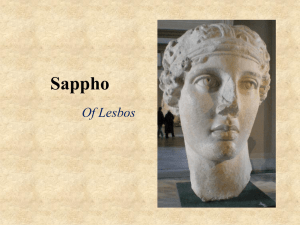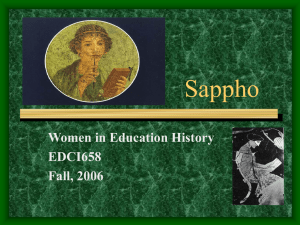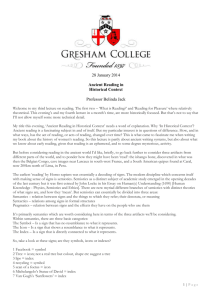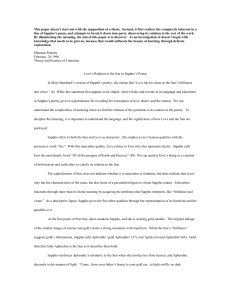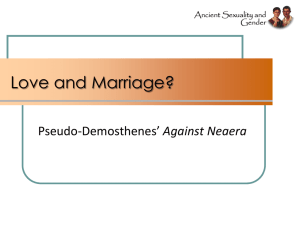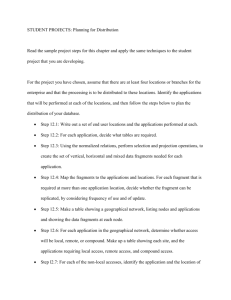Complaints of an Old Lady: Sappho, Women, and the Aging Process
advertisement
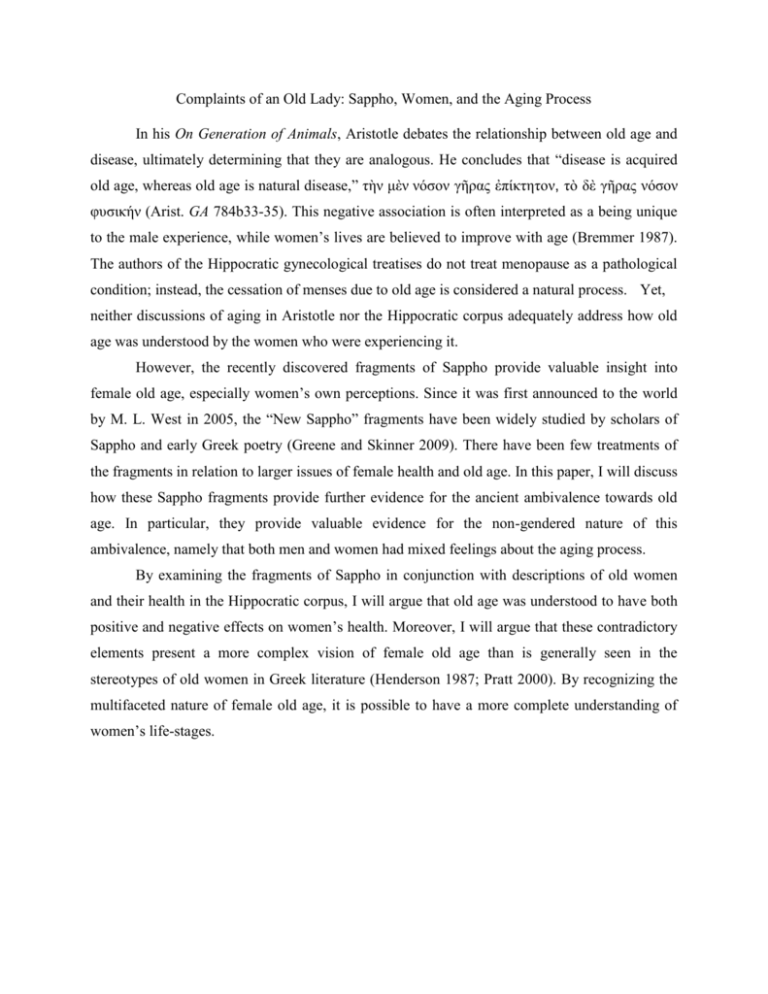
Complaints of an Old Lady: Sappho, Women, and the Aging Process In his On Generation of Animals, Aristotle debates the relationship between old age and disease, ultimately determining that they are analogous. He concludes that “disease is acquired old age, whereas old age is natural disease,” τὴν μὲν νόσον γῆρας ἐπίκτητον, τὸ δὲ γῆρας νόσον φυσικήν (Arist. GA 784b33-35). This negative association is often interpreted as a being unique to the male experience, while women’s lives are believed to improve with age (Bremmer 1987). The authors of the Hippocratic gynecological treatises do not treat menopause as a pathological condition; instead, the cessation of menses due to old age is considered a natural process. Yet, neither discussions of aging in Aristotle nor the Hippocratic corpus adequately address how old age was understood by the women who were experiencing it. However, the recently discovered fragments of Sappho provide valuable insight into female old age, especially women’s own perceptions. Since it was first announced to the world by M. L. West in 2005, the “New Sappho” fragments have been widely studied by scholars of Sappho and early Greek poetry (Greene and Skinner 2009). There have been few treatments of the fragments in relation to larger issues of female health and old age. In this paper, I will discuss how these Sappho fragments provide further evidence for the ancient ambivalence towards old age. In particular, they provide valuable evidence for the non-gendered nature of this ambivalence, namely that both men and women had mixed feelings about the aging process. By examining the fragments of Sappho in conjunction with descriptions of old women and their health in the Hippocratic corpus, I will argue that old age was understood to have both positive and negative effects on women’s health. Moreover, I will argue that these contradictory elements present a more complex vision of female old age than is generally seen in the stereotypes of old women in Greek literature (Henderson 1987; Pratt 2000). By recognizing the multifaceted nature of female old age, it is possible to have a more complete understanding of women’s life-stages. Works Cited Bremmer, Jan. 1987. “The Old Women of Ancient Greece.” in Sexual Asymmetry: Studies in Ancient Society. Eds. Josine Blok and Peter Mason. Amsterdam: J. C. Gieben. 191-215. Greene, Ellen and Marilyn B. Skinner, eds. 2009. The New Sappho on Old Age: Textual and Philosophical Issues. Washington, DC: Center for Hellenic Studies. Henderson, Jeffrey. 1987. “Older Women in Attic Old Comedy.” Transactions of the American Philological Association 117. 105-129. Pratt, Louise. 2000. “The Old Women of Ancient Greece and the Homeric Hymn to Demeter.” Transactions of the American Philological Association 130. 41-65. West, M. L. 2005. “The New Sappho.” Zeitschrift für Papyrologie und Epigraphik 151: 1-9.
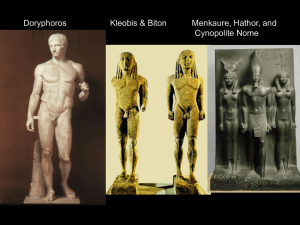
![Sappho of Lesbos [born c. 612 B.C.]](http://s2.studylib.net/store/data/013557115_1-db8ccd35153c5cc01877faa208c7ef0e-300x300.png)


